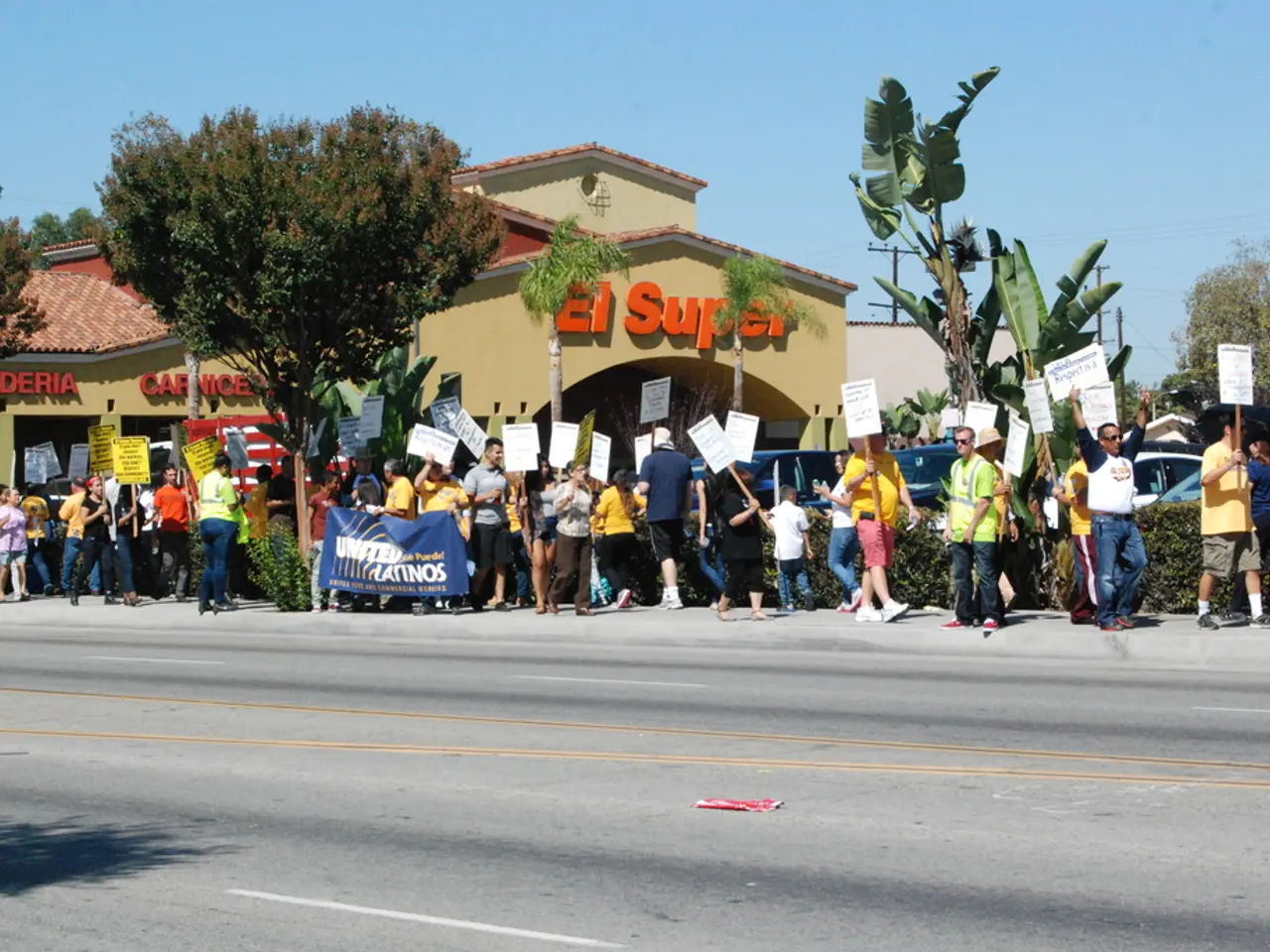Democrats view Trump's substantial legislation as potential catalyst for their resurgence. However, achieving this could prove challenging.
In a significant move, the recently passed Republican tax and spending bill, expected to be signed by President Trump, is set to have a profound impact on healthcare coverage and food assistance for millions of Americans.
The legislation, met with unanimous opposition from Democrats, is poised to bring about substantial changes in the healthcare sector. The bill is projected to cut approximately $1 trillion in federal health spending over the next decade, affecting Medicaid, Affordable Care Act (ACA) marketplaces, and immigrant benefits. This cut could potentially reverse much of the healthcare coverage gains made under the Biden and Obama administrations, which had reduced the uninsured rate to historic lows.
The Congressional Budget Office estimates that nearly 12 million more people will lose health insurance by 2034 due to reductions in federal support for Medicaid and ACA marketplaces. The bill also imposes a Medicaid work requirement for some able-bodied adults, which could result in millions losing coverage if they do not meet employment or reporting standards. Furthermore, it eliminates Medicaid access for many lawfully present immigrants, reflecting the Trump administration’s restrictive immigration approach.
These changes could strain hospitals, nursing homes, and community health centers, potentially leading to reduced services or closures as they absorb more uncompensated care costs. Out-of-pocket costs for patients are projected to increase, deepening healthcare financial burdens on vulnerable populations, including older adults, people with disabilities, children, and low-income families.
In the realm of food assistance, the legislation includes deep cuts to the Supplemental Nutrition Assistance Program (SNAP), leading to increased food insecurity and poverty. These cuts contribute to destabilizing the broader social safety net during a time when many Americans rely heavily on these programs for basic needs.
Democrats are using the bill as a key political issue in the midterm elections, emphasizing the bipartisan nature of the bill's cuts and the fact that it passed without any Democratic votes. They argue that the bill disproportionately benefits high-income earners through tax cuts while imposing severe hardships on low- and middle-income families. Advocacy groups and Democratic lawmakers are urging voters to reject Republican candidates who support the bill, emphasizing the potential for widespread harm to health and nutrition programs as a central campaign theme.
The polls suggest that majorities of U.S. adults support increasing the annual child tax credit and eliminating taxes on earnings from tips, but oppose the bill as a whole. About half of U.S. adults support work requirements for some adults who receive Medicaid. The Democratic National Committee Chair, Ken Martin, stated that "Republicans own this mess and it's an albatross around their necks heading into the midterms."
The bill provides for $4.5 trillion in tax breaks that were enacted in Trump's first term and would have expired if Congress failed to act. It also allows workers to deduct tips and overtime pay. However, it includes $1.2 trillion in cuts to Medicaid and food stamps and a major rollback of green energy investments.
As the midterm elections approach, Democrats are planning a summer of organizing, with a focus on Trump's bill, in competitive congressional districts. Progressive groups are planning a "Families First" day of action for July 26 in all 50 states, highlighting people hurt by the new Medicaid cuts and holding a 60-hour vigil at the U.S. Capitol. The Democratic National Committee and its allies are planning an "organizing summer" in at least 35 competitive congressional districts, with a focus on Trump's bill.
In conclusion, the Republican tax and spending bill represents one of the largest cuts to healthcare and food assistance in recent history, with profound effects on coverage, costs, and basic needs for millions of Americans. Democrats leverage these impacts to mobilize opposition ahead of the midterm elections.
- The Republican tax and spending bill, which is expected to cut approximately $1 trillion in federal health spending over the next decade, has become a significant political issue in the upcoming midterm elections.
- The bill's impact on healthcare coverage and food assistance is expected to affect millions of Americans, with nearly 12 million more people projected to lose health insurance by 2034 due to reductions in federal support for Medicaid and Affordable Care Act (ACA) marketplaces.
- As the bill is poised to bring about substantial changes in the healthcare sector, Democrats are urging voters to reject Republican candidates who support it, arguing that the bill disproportionately benefits high-income earners while imposing severe hardships on low- and middle-income families.







